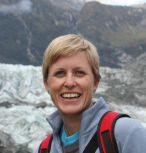DNA reveals the past and future of coral reefs
New DNA techniques are being used to understand how coral reacted to the end of the last ice age in order to better predict how they will cope with current changes to the climate. James Cook Univer

From 2005 to 2022, the main node of the ARC Centre of Excellence for Coral Reef Studies was headquartered at James Cook University in Townsville, Queensland (Australia)








Abstract: Long term monitoring has typically focused on the ecological components of the Great Barrier Reef. However, it has been increasingly recognised that it is essential to include and understand the people involved in this complex social-ecological system. The well-being of the ecosystem is critically linked to the well-being of the social system, and vice versa. The Social and Economic Long Term Monitoring Program (‘SELTMP’) is attempting to fill the current void in cross-sector social and economic data, to help ensure the inclusion of the social dimensions of the Great Barrier Reef in its management. The SELTMP includes groups such as Traditional Owners, the marine tourism industry, the commercial fishing industry, recreational users and coastal communities as well as ports and shipping, catchment industries and mining. The aim of the SELTMP is to assist policy makers and leaders to make decisions that not only enhance conservation goals, but also maximize the well-being of the region. This seminar gives an overview of the SELTMP and its underlying frameworks, and a preliminary viewing of a selection of secondary data and primary survey data collected from over 8000 residents, tourists, tourism operators and commercial fishers.
Biography: Renae Tobin is a social scientist with the Centre for Sustainable Tropical Fisheries and Aquaculture and the School of Earth and Environmental Science at JCU. She has worked with Queensland fishers and fisheries and marine park managers through social science research for more than 10 years, making the transition from marine ecology to social science during her PhD. Her research has been primarily stakeholder driven and
therefore diverse, ranging from exploring conflict between sectors, investigating attitudes and perceptions of fishers and consumers to fisheries and their management, documenting effects of management change on industry, developing socio-economic indicators, investigating potential for co-management in regional areas, and exploring the adaptive capacity of industry to change.
New DNA techniques are being used to understand how coral reacted to the end of the last ice age in order to better predict how they will cope with current changes to the climate. James Cook Univer
A new study on the effects of climate change in five tropical countries has found fisheries are in more trouble than agriculture, and poor people are in the most danger. Distinguished Profess
James Cook University researchers have found brightly coloured fish are becoming increasingly rare as coral declines, with the phenomenon likely to get worse in the future. Christopher Hemingson, a
Researchers working with stakeholders in the Great Barrier Reef region have come up with ideas on how groups responsible for looking after the reef can operate more effectively when the next bleaching
Abstract: As marine species adapt to climate change, their heat tolerance will likely be under strong selection. Individual variation in heat tolerance and its heritability underpin the potential fo
Abstract: The Reef Ecology Lab in KAUST’s Red Sea Research Center explores many aspects of movement ecology of marine organisms, ranging from adult migrations to intergenerational larval dispersal
Abstract: Macroalgal meadows are a prominent, yet often maligned component of the tropical seascape. Our work at Ningaloo reef in WA demonstrate that canopy forming macroalgae provide habitat for ad
Abstract: Sharks are generally perceived as strong and fearsome animals. With fossils dating back at least 420 million years, sharks are not only majestic top predators but they also outlived dinosa
Abstract: Connectivity plays a vital role in many ecosystems through its effects on fundamental ecological and evolutionary processes. Its consequences for populations and metapopulations have been
Abstract: Evolution of many eukaryotic organisms is affected by interactions with microbes. Microbial symbioses can ultimately reflect host’s diet, habitat range, and even body shape. However, how
Abstract: The past few years have seen unprecedented coral bleaching and mortality on the Great Barrier Reef (GBR) but the consequences of this on biodiversity are not yet known. This talk will expl